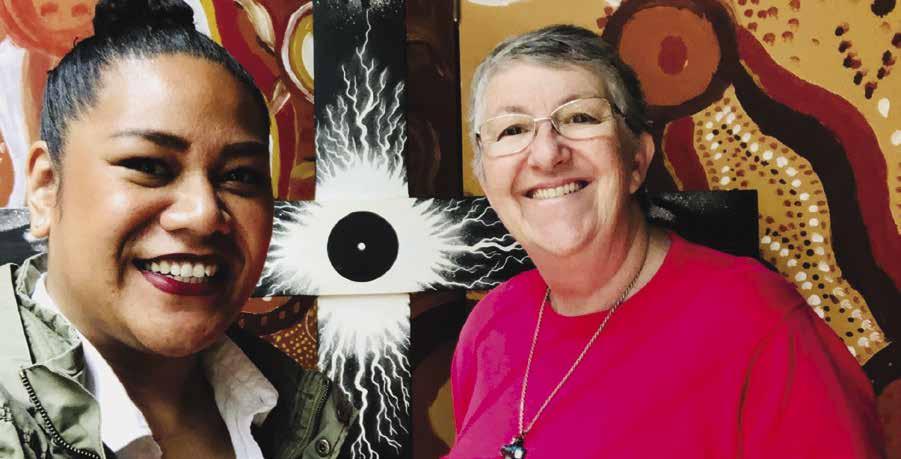Evaluation and Learning Caritas Australia is committed to delivering the best outcomes for the communities we partner with. Through evaluation and learning we can identify best practices, areas of improvement and opportunities for expansion. This process of learning means that when the unexpected happens, such as during the current COVID-19 pandemic, we are better able to anticipate what will be effective based on our previous evaluations. For example, the evaluation of the response to the Ebola crisis has informed our understanding of effective strategies for transmitting health messages. Caritas Australia, part of the Church Agencies Network Disaster Operations (CAN DO) consortium and in partnership with CAFOD and ADRA, undertook a participatory evaluation of the response to the Ebola crisis in the Democratic Republic of the Congo. The Ebola response evaluation found local leaders were initially not engaged in the response which slowed the circulation of vital health information to remote communities. When 1,360 trusted local religious leaders were trained to share health information and dispel misinformation, early detection and treatment improved. The Ebola crisis evaluation showed that it is effective to spread health messages through trusted organisations such as churches and schools when targeting remote communities. Caritas Australia and partners used trusted messengers such as religious leaders and schools to disseminate health information, soap and face masks to vulnerable communities to prevent the spread of COVID-19. In Bangladesh, the Sustainable Livelihood Program for Indigenous Communities in Dinajpur works with traditional society organisations (TSOs) to strengthen relationships between Indigenous communities and local government. The end-ofprogram evaluation found that the TSOs are addressing social issues including community conflicts, school attendance, land transfers and disputes. The relationships with local government have been strengthened. This means that TSOs are able
14 BRINGING HOPE IN EMERGENCY
to secure government safety net allowances independently and advocate for their own needs without external support, an important indicator of longterm sustainability.
Caritas Australia is committed to working with our local partners and respective communities in promoting ongoing learning and improvement through sound monitoring and evaluation practices.
Before the program, there were few women involved in the TSOs. The end-of-program evaluation showed that all TSOs now have active female members, and that Indigenous women regularly contribute to decision-making. An evaluation of the Caritas Cambodia Prison Project found that the program has improved health outcomes, as inmates now have better hygiene practices and access to dedicated health facilities and staff inside the prison. There has been a reduction in illness and fewer inmates requiring referral to hospital. There has also been a significant improvement in the relationship between prison staff members and inmates, which has improved living conditions and a sense of dignity. However, the evaluation found that the vocational training program could be further strengthened to support inmates. All prisons currently offer a limited number of vocational training courses for inmates and this has increased morale and hope for the future amongst participants. Despite these positive changes, the evaluation found that the number of available training places is inadequate to meet demand, and that many people miss out due to lack of resources and funding.
Children in a village in Gokwe, Zimbabwe. Photo: Isabel Corthier/Caritas Internationalis.
The Caritas Cambodia Prison Project has now shifted focus to build the capacity of the prisons to fund their own training programs for the future. As Caritas Australia, partners and participants face the COVID-19 pandemic, a culture of evaluation and learning based on strong relationships is invaluable. With this secure foundation we have been able to adapt quickly to the rapidly changing context, including shifting our monitoring and evaluation systems to remote and online. Through robust evaluation and learning we can identify the challenges faced by the marginalised, and ensure that our programs are accessible to those who need it most.
This year, we evaluated eight long term development programs: • Cambodia: Comprehensive Prison Program • Cambodia: Deaf Development Program • Bangladesh: Sustainable Livelihood Program for Indigenous Communities • Bangladesh: Sustainable Food and Livelihood Security • India: Community Led Development & Governance • Timor-Leste: Sustainable Livelihoods and Disaster Risk Reduction Program • Timor-Leste: Protection Program • DRC: Building hope and community in the Ebola Virus Disease



















